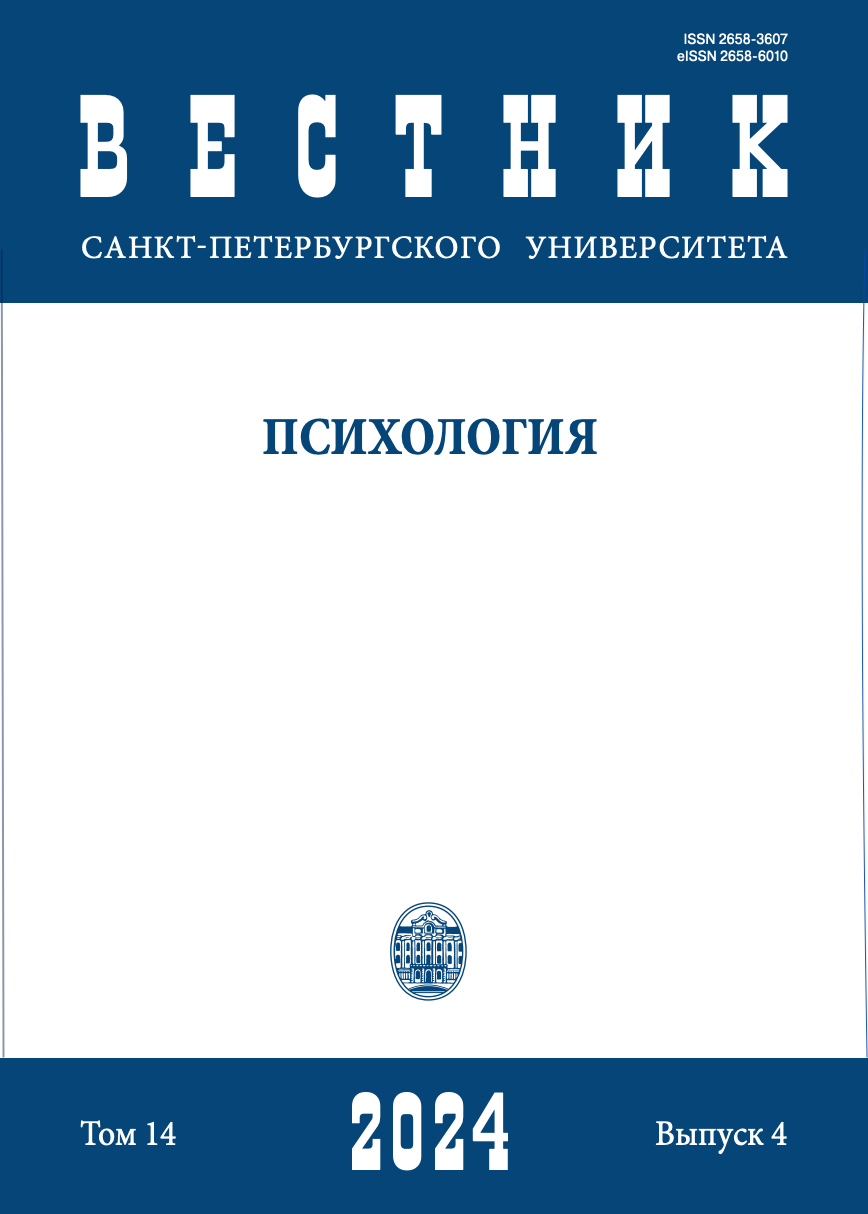Shared leadership and mental models’ compatibility as predictors of work group resilience
DOI:
https://doi.org/10.21638/spbu16.2024.407Abstract
In a turbulent business environment, the problem arises of ensuring the resilience at work in order to cope with unexpected threats, restore productivity, proactively overcome risks and variability of work processes, gaps in coordination of actions, and create the potential for advanced development based on anticipation. Against the backdrop of extensive research into individual and organizational resilience resources, there has been little research into group resilience factors, among which shared leadership and the compatibility of mental models of group members stand out. Objective: to evaluate the contributions of shared leadership and mental model compatibility as predictors of group resilience. Hypotheses: shared leader- ship and compatibility of members’ mental models have a positive effect on group resilience. Sample: 213 employees of Russian organizations. Methods: Team Resilience Scale; Shared Leadership Inventory in Teams (SPLIT); mental model compatibility scale. Analysis: normal distribution test, correlation (Pearson) and regression analysis; structural equation modeling (AMOS). Results: interrelations between indicators of shared leadership and compatibility of mental models with indicators of group resilience were found (0.43–0.77, padj < 0.01). Predictors of group resilience are indicators of shared leadership (in relationships, in change, and in external communications), as well as a general indicator of the compatibility of mental models. The compatibility of mental models does not have a significant direct effect on the resilience of groups, but at the same time it has a positive effect on resilience through shared leadership — 0.69, which plays the role of a mediator. Shared leadership has a direct positive effect on group resilience — 0.92. The impact of mental model compatibility on resilience occurs when shared leadership emerges from group dynamics, allowing a shared mental model to be used for teamwork. Shared leadership is a priority that interventions should focus on to develop teams in organizations.
Keywords:
organizational resilience resources, team resilience, shared leadership, compatibility of mental models
Downloads
References
References
Downloads
Published
How to Cite
Issue
Section
License
Articles of "Vestnik of Saint Petersburg University. Psychology" are open access distributed under the terms of the License Agreement with Saint Petersburg State University, which permits to the authors unrestricted distribution and self-archiving free of charge.




